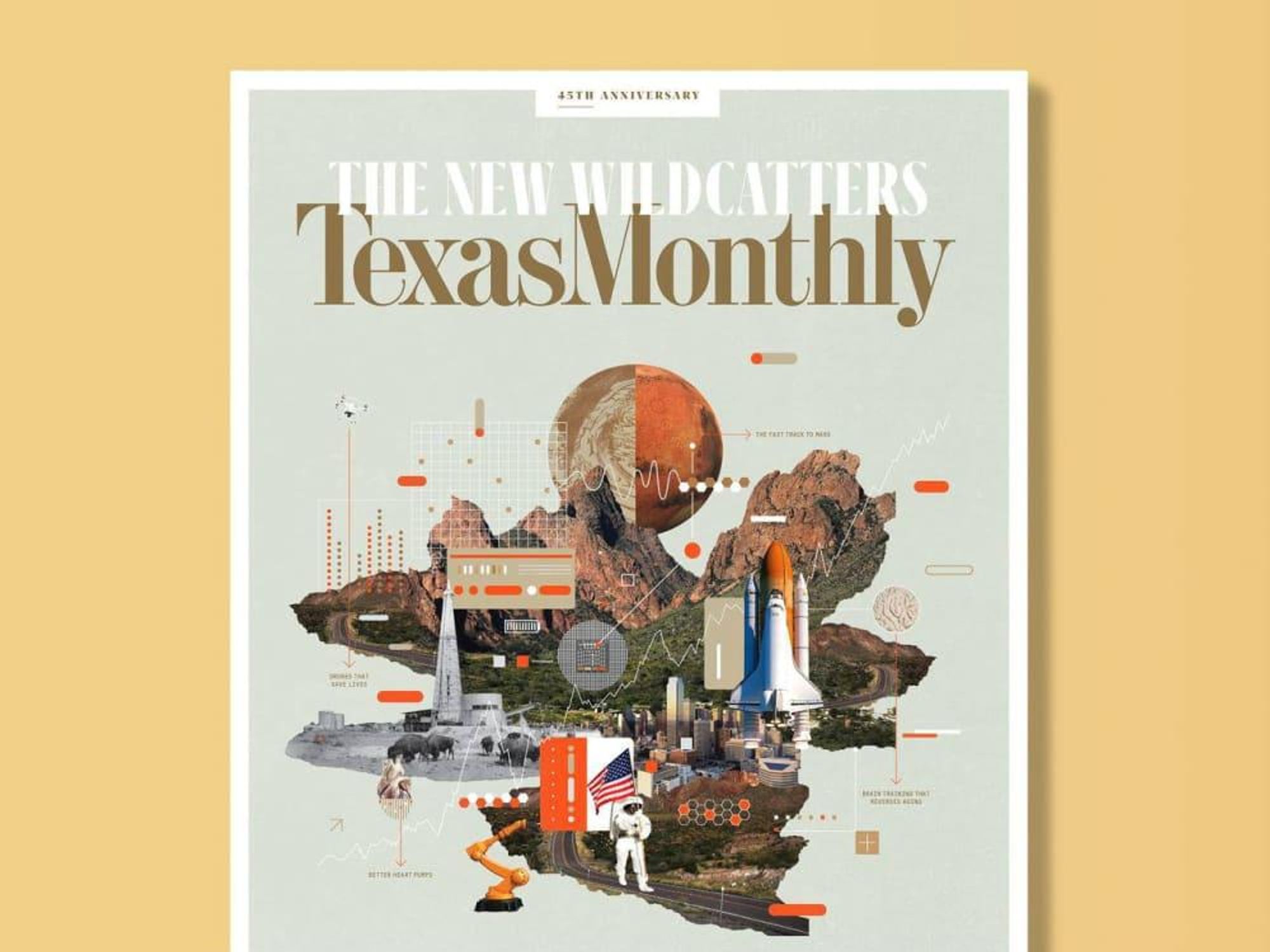News on News
Austin-based Texas Monthly faces backlash after series of blunders

It's rarely a good thing when a news outlet goes from making the news to being the news, but that's exactly what is happening to Texas Monthly. Over the past week, a series of articles published mainly for journalism insiders and news junkies have taken aim at the stalwart magazine, specifically its embattled editor in chief.
Since its founding in 1973, Austin-based Texas Monthly has been a beacon for narrative nonfiction and journalistic integrity. Considered one of the best magazines in the country alongside such institutions as The New Yorker and The Atlantic, Texas Monthly has won more than a dozen national magazine awards, developed a reputation for dogged political reporting, and managed to produce some very fine writing along the way.
If we're going back to the very beginning, it seems the trouble first started in February 2017 when the Columbia Journalism Review published a report that Texas Monthly's new editor in chief, Tim Taliaferro, would be taking a magazine most famous for political writing and crime reporting in a lifestyle direction. Having recently been purchased by a Paul Hobby-led private equity firm from media conglomerate Emmis Communications, the magazine was in the midst of a rebuilding moment, having lost editor Brian Sweany alongside about a dozen other notable names in the takeover.
While news of a shift towards lifestyle coverage wasn't exactly surprising — media outlets across the country have frantically tried to retool their editorial plans in accordance with the appetites of digitally savvy millennials — it was a quote from Taliaferro that garnered the most buzz. "Texans don’t care about politics," he told CJR in an interview.
Reaction from readers was swift, forcing Taliaferro to backpedal and issue a statement saying that CJR had taken his words out of context. CJR countered by releasing the reporter's notes from the interview; Taliaferro re-countered the counter by issuing a statement that he had given the reporter the wrong impression.
If anything, the blunder seemed like inexperience on the part of Taliaferro, and perhaps a lack of judgment on the part of TM's public relations team for letting him go on the record with CJR so soon into his tenure.
But, as the old adage goes, where there's smoke, there's fire, and over the past 10 days, the story's gotten even hotter. (Also, we understand the irony of using a cliche that would likely never appear in Texas Monthly to describe the turmoil.)
On January 26, 2018, CJR published yet another piece criticizing Taliaferro, this time for boasting during an editorial meeting that the magazine had entered into a paid agreement with Austin-based Bumble to feature the dating site's CEO, Whitney Wolfe Herd, on the February 2018 cover in exchange for a $25,000-$30,000 push on Bumble's social media. If true, this sort of agreement isn't just a gray zone, it's a clear violation of journalistic ethics.
Once again, Taliaferro countered, telling CJR that it was merely a discussion about Bumble's dedicated social media campaign to support the story — a discussion that began after Herd was selected for the cover. While CJR cited undated emails and quotes from unnamed sources present at the editorial meeting as evidence that some paid agreement may exist, it isn't quite a slam dunk in terms of a takedown.
But it was enough to get people talking — and Texas Monthly on the defensive.
In reaction to CJR's piece, D Magazine published its own story, entitled "Texas Monthly’s Tim Taliaferro: The Most Misunderstood Magazine Man," which makes the point that perhaps the most disturbing thing is this current editorial team's lack of communication.
"The CJR reports that when Taliaferro communicated poorly with his staff, misleading them to believe that he’d struck a deal with Bumble, they sat in 'stunned silence.' A media organization can’t operate (for long) that way," writes Tim Rogers.
"When the people at the top have really bad, unethical ideas, or when they simply get misunderstood, the mood in the room needs to be such that everyone feels comfortable raising a hand and saying, 'Let me see if I understand what you’re saying. Because it sounds to me like you just said something that worries me.'"
Perhaps to improve this culture of miscommunication, Hobby, now chairman and CEO of Texas Monthly, announced on February 2 that he was hiring former Austin American-Statesman editor Rich Oppel as the magazine's new ombudsman. In a statement, Hobby said Oppel would be asked to "review our processes and organizational structure," and also called out Taliaferro for his "misstep."
"Editor in chief Tim Taliaferro’s communications with Bumble publicists may have incorrectly appeared to be a blurred line between the editorial and business sides of the magazine. When it comes to Texas Monthly’s journalism, even the appearance of impropriety can be damaging and is not acceptable," Hobby said in the statement. "Taliaferro has acknowledged his misstep and regret to our staff, who care deeply about upholding the highest standards of journalism."
While Texas Monthly's statement seemed to place blame directly at Taliaferro's feet, the Daily Beast wasn't so quick to let Hobby off the hook. According to the Daily Beast: "'Tim is a symptom,' said one former staffer who requested anonymity out of fear of professional retaliation. 'The person who set that situation up is ... Paul Hobby.'"
The Daily Beast goes on to posit that when Hobby tapped the 33-year-old Taliaferro to lead one of the nation's preeminent magazines, he was setting him up for failure. What they don't note, however, is that Jake Silverstein, Texas Monthly's highly regarded fourth editor, was also 33 years old when he took over the helm in 2008. Silverstein is now the editor of the New York Times Magazine.
We may never know the whole truth behind the Bumble cover controversy or who, if anyone, is solely to blame. As an institution, Texas Monthly's decision to hire Oppel and categorically condemn the exchange of money for editorial coverage is exactly what fans, subscribers, and fellow journalists should expect — and deserve — from the magazine.
As for Taliaferro, taking over a magazine is always a tenuous affair; taking over a magazine where leadership doesn't fully support its editor is almost impossible. For the sake of Texas Monthly as an institution, let's hope the new masthead figures that out quickly so the magazine can stop being the story and get back to writing them.
